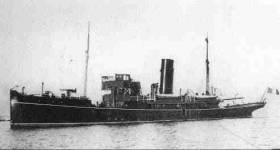Displaying items by tag: Lecture: 1916 Maritime Aspects
Lecture: ‘Maritime Aspects of the 1916 Rising’
#1916maritime - The Winter lecture 2015/16 season of the Glenua Sailing Centre concludes with a lecture entitled: ‘Maritme Aspects of the 1916 Rising’ by Dr Edward Bourke.
The illustrated lectures will take place on Thursday 14 April (20:00hrs) at the Poolbeg Yacht & Boat Club, Ringsend, Dublin. There will be an entry fee of €5 in aid of the R.N.L.I.
Edward Bourke is an industrial microbiologist recently retired from brewery research. He is also maritime historian and has published five books on Irish shipwrecks as well as a history of Guinness. Currently he is working on the role of intelligence during the war of Independence in Ireland.
In his illustrated lecture, Edward will explore several maritime aspects of the 1916 events. Foremost among them being the role played by the Royal Navy in suppressing The Rising by strategic interventions.
He will assess the view that the impact of the Helga is greatly exaggerated on the basis that most of the shelling of Dublin was done by field artillery or whether the import of guns for the Volunteers in 1914 was carefully controlled by the British authorities. How plausible is the opinion that the navy had ample forewarning of the intentions of the Volunteers but allowed the 1916 Rising to proceed?
Edward will also discuss the significance of the 1916 rising in the wider context of the Great European War.
























































